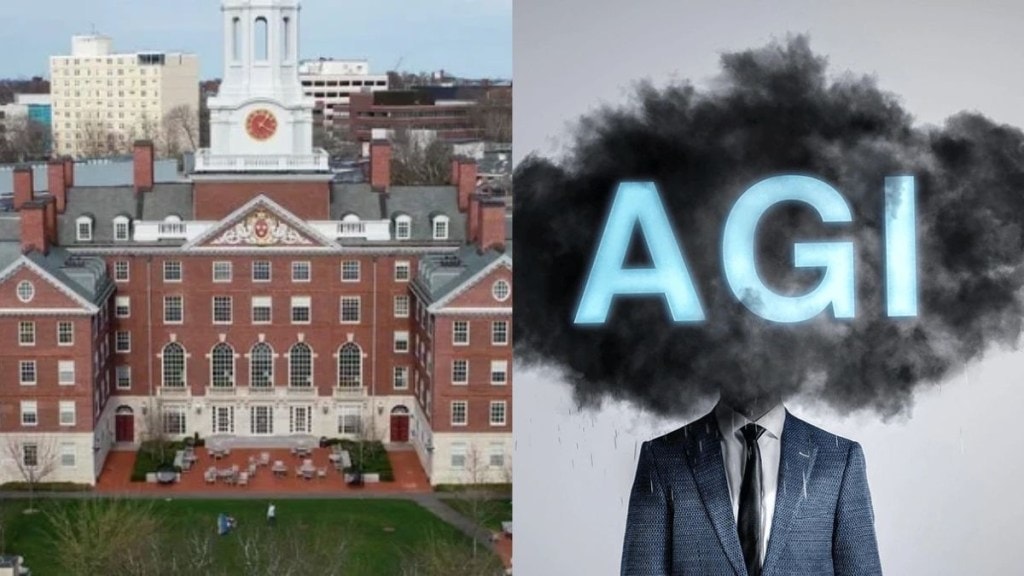From an early age, a person’s success has often been measured by the number of degrees they earn and their academic performance. But in today’s world, where artificial intelligence and the prospect of artificial general intelligence are rapidly transforming industries, this equation is shifting.
Even at elite institutions like Harvard University, dropout rates are rising.
“If your career is about to be automated by the end of the decade, then every year spent in college is one year subtracted from your short career,” says Nikola Jurković, a recent Harvard graduate and former AGI preparedness lead at the university’s AI Safety Group, speaking to Forbes.
Across Harvard, MIT, and other top schools, students are leaving prestigious degree programmes to join AI labs, work in AI safety research nonprofits, or launch startups driven by a combination of existential concern and a sense of unprecedented opportunity.
What is AGI?
Artificial General Intelligence refers to a still-theoretical form of AI designed to match human intelligence in its full breadth. Unlike AI, which is built to perform specific tasks, AGI would be capable of understanding, learning, and solving problems across a wide range of cognitive areas much like a human being.
Ideally, AGI would demonstrate skills such as abstract reasoning, common-sense thinking, cause-and-effect understanding, transfer learning, and context-aware natural language processing.
Earlier this week, Sam Altman, chief executive of OpenAI, described the latest upgrade to ChatGPT as “a significant step forward, but not a leap over the finish line.”
The “race” he referred to is toward artificial general intelligence (AGI). Speaking about the new GPT-5 model, which now powers ChatGPT, Altman called it “a significant step on the path to AGI” but noted that it still falls short in key areas.
Among the missing capabilities, he added the inability to “continuously learn” after deployment, a limitation that means the system, while impressive, cannot yet achieve the level of autonomy required to handle a full-time human role.
In 2024–2025, Harvard University reported dropout rate of around 4%, corresponding to a freshman retention rate of 96%. Its six-year graduation rate stands between 96.7% and 98%, meaning that nearly all enrolled students go on to earn their degrees.
Why are MIT and Harvard students dropping out?
As told to Forbes, Alice Blair of MIT enrolled in 2023 eager to study computer science and ensure artificial intelligence was developed for humanity’s benefit.
Two years later, convinced that artificial general intelligence could lead to human extinction, she’s taken a permanent leave to work at the Center for AI Safety, helping produce research and newsletters.
Physics and computer science major Adam Kaufman of Harvard university left last fall to join Redwood Research, a nonprofit focused on stopping deceptive AI systems.
His brother, roommate, and girlfriend have all taken similar leaves to work at OpenAI. “I’m quite worried about the risks and think the most important thing to work on is mitigating them,” Kaufman says to Forbes.
Meanwhile, NYU’s Gary Marcus calls near-term AGI “extremely unlikely,” due to unresolved problems like reasoning errors and hallucinations. Still, the fear is enough to spur action.
The dropout wave is not all doom-driven. Many see AI as the biggest startup boom since the early social media era. As reported by Forbes, Anysphere CEO Michael Truell left MIT and now runs a company valued at $9.9 billion. Georgetown dropout Brendan Foody’s Mercor has raised over $100 million.
Following that path, Washington University student Jared Mantell left his economics and computer science program to build dashCrystal, a startup that automates electronics design.
It has already raised $800,000 at a $20 million valuation. “There’s a limited window to have a hand on the steering wheel,” Mantell says.
Dropping out of college carries significant risks. Data from the Pew Research Center shows that young adults with a bachelor’s degree earn about $20,000 more annually than those without one, and in an era where AI is already shrinking early-career opportunities, the absence of a degree can further limit prospects.
